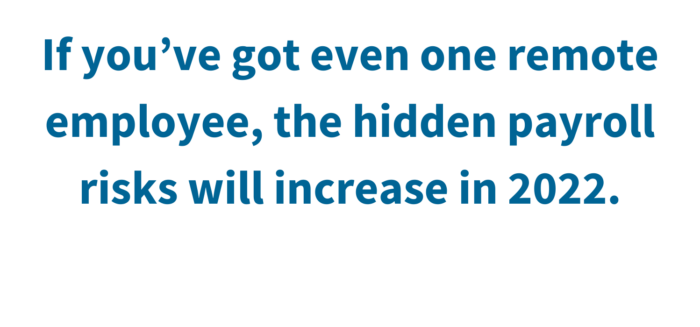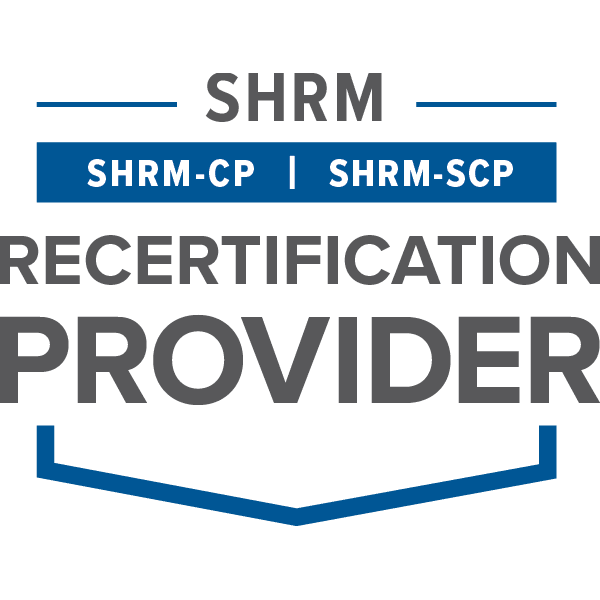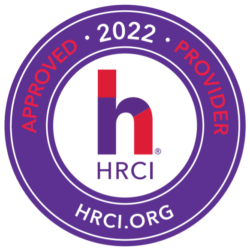
Payroll Compliance for Remote Employees
Even if employees work one day a week in different states, you could be liable to pay taxes in those states.
Trudging to the office is so … 2019. But for payroll professionals, the remote work trend has created a host of new complexities and compliance risks.
Warning: During the peak of the pandemic, many states relaxed their withholding rules to accommodate employers. But that benevolence has ended and states are once again aggressively enforcing their withholding rules for remote workers. The impact: Having employees working from different states will likely trigger unintended payroll liabilities in states far from your corporate offices.
Even if employees work only one or two days a week from home in different states, you could be liable to pay taxes in those states. And one tax liability usually leads to a host of others. Depending on state rules, you could also be on the hook for corporate, excise, and unemployment taxes. State minimum wage and wage payment laws present another surprise liability.
Don’t get caught unprepared and out of compliance. States, like the IRS, are unforgiving.
In this new webinar recording, learn the ins and outs of labor and tax laws when dealing with remote workers. Discover how to track remote employees' time, comply with new payroll laws and avoid penalties for failing to pay employees properly. Learn what you need to know to avoid surprises and fines later.
Agenda for Payroll Compliance for Remote Employees:
- Use nexus, domicile and residency to your company's advantage. Those key concepts could get your organization off the hook for personal and corporate income taxes in some states.
- Get in total compliance for remote payroll. Learn the 10 factors that determine if you owe taxes for remote workers in their home state.
- Learn the best strategies for tracking remote employees’ work time. If remote employees are nonexempt, you need a sure-fire way to track their time.
- Discover the best way to pay. While electronic pay options (like direct deposit) are optimal for employees who aren’t in the office, state laws can throw up a huge hurdle.
- Find out if you are liable for unemployment coverage. State unemployment taxes can be tricky. Learn the four tests to see if you must pay up.
- The advantages and pitfalls of reciprocity and "courtesy withholding.” In some states you can withhold income taxes for employees' states of residence. But it could also open your company to a full array of state taxes.
During this 75-minute training, you’ll learn how to:
- Withhold income taxes correctly.
States had relaxed their withholding rules to accommodate employers, but those breaks have ended. What now?
- Smooth out the payday experience.
Discover the most efficient and legally smart way to handle remote pay (electronic pay options are optimal).
- Comply with state labor laws.
Learn the right way to track hours, meals, and breaks for your remote staff.
View a free clip:
Your Presenter:

Alice Gilman, Esq., is an expert in payroll and tax compliance who has covered payroll issues for more than 26 years. She's written and edited several leading payroll publications, including Payroll Legal Alert, the Research Institute of America's Payroll Guide, the American Payroll Association's Basic Guide to Payroll and the Payroll Manager's Letter.
Professional Certification Credit Hours Included:

Business Management Daily is recognized by SHRM to offer Professional Development Credits (PDC) for SHRM-CP® or SHRM-SCP® recertification activities.

HRCI has pre-approved this activity for recertification credit toward the aPHR®, PHR®, PHRca®, SPHR®, aPHRi™, PHRi™, GPHR® and SPHRi™ certifications. The content of the activity submitted has met the criteria of the Approved Provider Program.
Your satisfaction is unconditionally guaranteed:

If Payroll Compliance for Remote Employees fails to meet your needs, we will refund every penny you paid – no hassles, no questions asked.